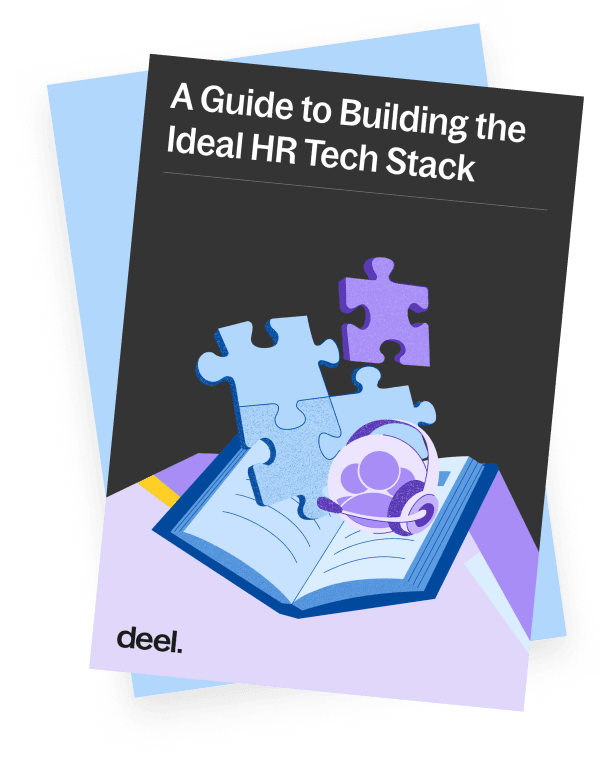Global Work Glossary
- Results for "undefined"
Table of Contents
Why is HR automation important?
What are the benefits of HR automation?
What are the challenges of HR automation?
What are some common examples of automated HR processes?
What are the top features to boost HR automation effectiveness?
What is HR Automation
HR automation is the process of optimizing time-consuming and repetitive human resources-related tasks by automating them through the use of software.
HR teams can leverage automation to improve the overall efficiency of their processes and free time and resources to focus on more business-relevant and strategic tasks.
Why is HR automation important?
Companies that are not able to quickly adapt and evolve can face stunted growth. HR automation enables organizations to keep up with rapidly evolving technological developments and changes in workplace culture and habits.
The many opportunities of global mobility, for example, can only be unlocked by the adoption of HR automation, as they involve compliance nuances that can be too complex to be manually processed effectively.
What are the benefits of HR automation?
The most immediate effects of HR automation are the reduction of repetitive tasks and improved processes. Automating HR workflows, however, carries benefits that influence all aspects of the company, from employee engagement to decision-making.
Below are some of the main positive outcomes of HR automation.
Better resource management
- Improved HR productivity
- Improved reporting
- Reduced human error
- Reduced manual tasks
Improved employee experience
- Easier access to documentation and personal data
- Measurable and actionable employee insights
- Improved employee engagement
- Better process transparency
- Improved employee retention
More effective compliance
- Increased data security
- Improved process standardization
- Easier auditing

What are the challenges of HR automation?
Among its many benefits, HR process automation carries some challenges which HR managers should take into account. Proactively addressing these challenges will ensure companies can focus on reaping the benefits of automation rather than rushing to fix issues. Some of the most relevant challenges to be mindful of are listed below.
Need for human interaction
Most HR work will benefit from emotional intelligence and human interactions that software cannot provide. Behind data and dashboards are people with needs, concerns, and personal issues, which HR professionals should always be able to address.
When implementing large-scale HR automation initiatives, HR departments must balance the increased efficiencies and simplification of automated processes with sufficient care and attention to employees’ personal needs.
Privacy and security concerns
Automated HR processes and platforms can raise concerns among staff about how personal and often sensitive data is being gathered, stored, and used.
Clear policies and transparent communication regarding data treatment are essential to help mitigate these concerns. These policies are best communicated during the onboarding process, so new employees can immediately get answers to their questions and doubts. Moreover, they should be easily available to all employees, for example, stored in a shared folder or an openly accessible documentation repository.
Implementation complexities
Integrating HR automation tools into existing processes and IT infrastructures can be a complex endeavor, and doing so incorrectly can hinder the benefits of automation. Companies should have a detailed strategy worked out when automating HR processes. This will allow for seamless integration of their existing systems and the automation tools of their choice, with minimal errors.
What are some common examples of automated HR processes?
Almost any HR process can be automated. Organizations looking into HR automation should determine which processes to prioritize and understand how they will impact HR operations and the company as a whole. This is how a successful automation strategy is built.
Commonly automated HR processes include:
- Recruitment
- Employee onboarding
- Payroll administration
- Time-off management
- Employee benefits administration
- Equipment management
- Internal communications and announcements
- Expense reports administration
- Employee performance management

What are the top features to boost HR automation effectiveness?
When looking at HR automation software options, it’s essential to understand what benefits they offer and what features will be most helpful. While reducing manual processes is already a big step towards increased efficiencies, there are specific features within automation solutions that can help take HR management to the next level.
Features to look out for include:
- Actionable insights
- Real-time reporting
- Forecasting capabilities
- Access management
- Omni-channel accessibility
- Self-service accessibility
- Easy integration
- Dynamic workflows
- Automated notifications
- Bulk processing
